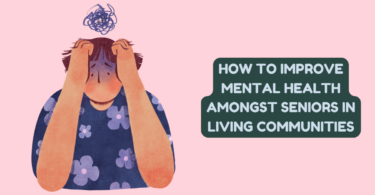
When Should You Visit a Psychiatrist?
Your mental health and well-being are crucial to your physical health. Your emotional, psychological, and social well-being influences your thoughts, feelings, and actions. It functions in harmony with your body and affects how you respond to stress and make decisions. Similar to how what you put into your body impacts your mind, what you let into your mind impacts your body. For optimum health, both now and in the future, it is crucial to maintain a healthy body and mind.
What Help Can a Psychiatrist Provide?
The examination, diagnosis, prevention, and treatment of mental, behavioral, and emotional problems are the areas of expertise of psychiatrists, who are medical professionals. Approximately 10–12 years of education are needed to become a psychiatrist. The process of earning this Doctor of Medicine certificate is challenging and calls for undergraduate coursework, medical school, the conclusion of a field residency, and the passing of board tests. Additional years of specialty training are necessary to specialize in specific fields, such as child and adolescent psychiatry, substance abuse, geriatrics, and forensic psychiatry.
Psychiatrist is equipped to diagnose mental disorders accurately, and their medical school background also equips them to evaluate any physical factors that might be causing a patient’s psychological problems. A psychiatrist’s ability to write prescriptions for drugs to treat mental health issues is crucial to their job. Remember that this is the main distinction between a clinical psychologist and a psychiatrist. Taking a mental health medicine in conjunction with the proper therapy is a frequent practice to reduce symptoms and/or change detrimental emotions, irrational beliefs, or harmful behaviors.
Some people may find it challenging to determine when to visit a psychiatrist. It can be tough and difficult to tell whether you’re overworked and need a mental health break or something more serious. So, if you are not comfortable for going to any psychiatrist then you can also opt for psychiatrist online for times which may feel you more confident in sharing your problems.
How often should I see a psychiatrist?
Are you experiencing a disconnection from those around you, whether at a family gathering or a party with your closest friends? A psychiatrist can assist you in regaining your identity if you are experiencing disillusions, which frequently leaves people feeling disconnected or lonely. Here are a few alarming signs that you should always pay attention to in case you’re unsure when to see a psychiatrist.
Inability to recover from trauma
Unlucky events like losing loved ones can be terrible experiences. As a result, it may have a bad impact on your mental health in several ways, like making you believe that the deceased person is still alive or that returning to a regular life is impossible.
Using drugs as a coping mechanism
Additional common indications of mental strain are excessive alcohol or drug use or the emergence of new addictions. Addictions and bad behaviors often increase the likelihood of various health conditions like eating disorders and sleep troubles.
Body effects of emotional turmoil
Having a weak immune system, frequent headaches, or stomach problems can result from being emotionally unhappy all the time. Disconnection from reality is becoming more prevalent.
What Indicates a Need for Psychiatric Consultation?
Some people find the phrase “mental illness” frightening, which unfortunately carries some stigma. Though it is estimated that roughly a fifth of the population suffers from a mental ailment like anxiety, depression, or bipolar disorder, mental illness is highly common. A psychiatric evaluation can assist in identifying a problem, its source, and treatment alternatives. Mental health problems can have a variety of causes, including stress and chemical imbalances. Because they are ashamed or unsure of who to visit, many persons with mental health issues rarely seek treatment.
Lack of Emotional Control
Everyone has sad, angry, or impatient moments; these emotions are common throughout life. But when someone has overwhelming feelings that they feel powerless to manage or control, this is a sign that a psychiatrist might be able to help. A triggering incident can be avoided by developing excellent emotional management skills.
Modifications to Sleeping Patterns
A person’s sleep hygiene might reveal a lot about their mental health. Sleeping issues are common among those who have mental health issues. They could struggle to go to sleep, wake up too early, or wake up frequently during the night. It is also challenging for them to get restorative sleep because they frequently spend less time in deep sleep stages.
Use of drugs
Alcohol or other substances may be used by those who struggle with mental health concerns as a coping mechanism. A warning sign is when someone needs drugs or alcohol frequently and does not feel happy without them, whether it is to assist them in relaxing or dealing with stress. Adolescents who start to struggle academically or who frequently miss class may be in need of mental examination. Adults who could start missing deadlines or having trouble focusing on professional activities might also relate to this.
What distinguishes a therapist from a psychiatrist?
A therapist is an expert in mental health who holds a master’s degree in a discipline like psychology, counseling psychology, or family therapy. They are qualified to conduct a mental health assessment and apply therapeutic strategies, including talk therapy. Licensed social workers and licensed professional clinical counselors are two examples of therapists. A therapist cannot recommend medication. A psychiatrist is a medical professional who can diagnose and offer medical advice for treating mental health issues.
What distinguishes a neurologist from a psychiatrist?
A neurologist is a medical professional who treats and manages diseases of the nervous system and the brain (brain, spinal cord, and nerves). A neurologist knows the structure, operation, and diseases that affect your nerves and nervous system.
While both neurologists and psychiatrists treat illnesses that affect the brain, a neurologist is more concerned with the physical manifestations of the condition and its symptoms. In contrast, a psychiatrist is more concerned with its cognitive and behavioral manifestations. A psychiatrist does not work with disorders that impact your nerves and spinal cord; neurologists diagnose and treat these conditions.
Conclusion
Psychiatry is the discipline of medicine that concentrate on diagnosing, treating, and preventing mental, emotional, and behavioral problems. As a result, psychiatrist is a medical professional who specializes in this area and it evaluate psychiatric disorders on both mental and physical levels. These ailments can be identified and treated by them.






